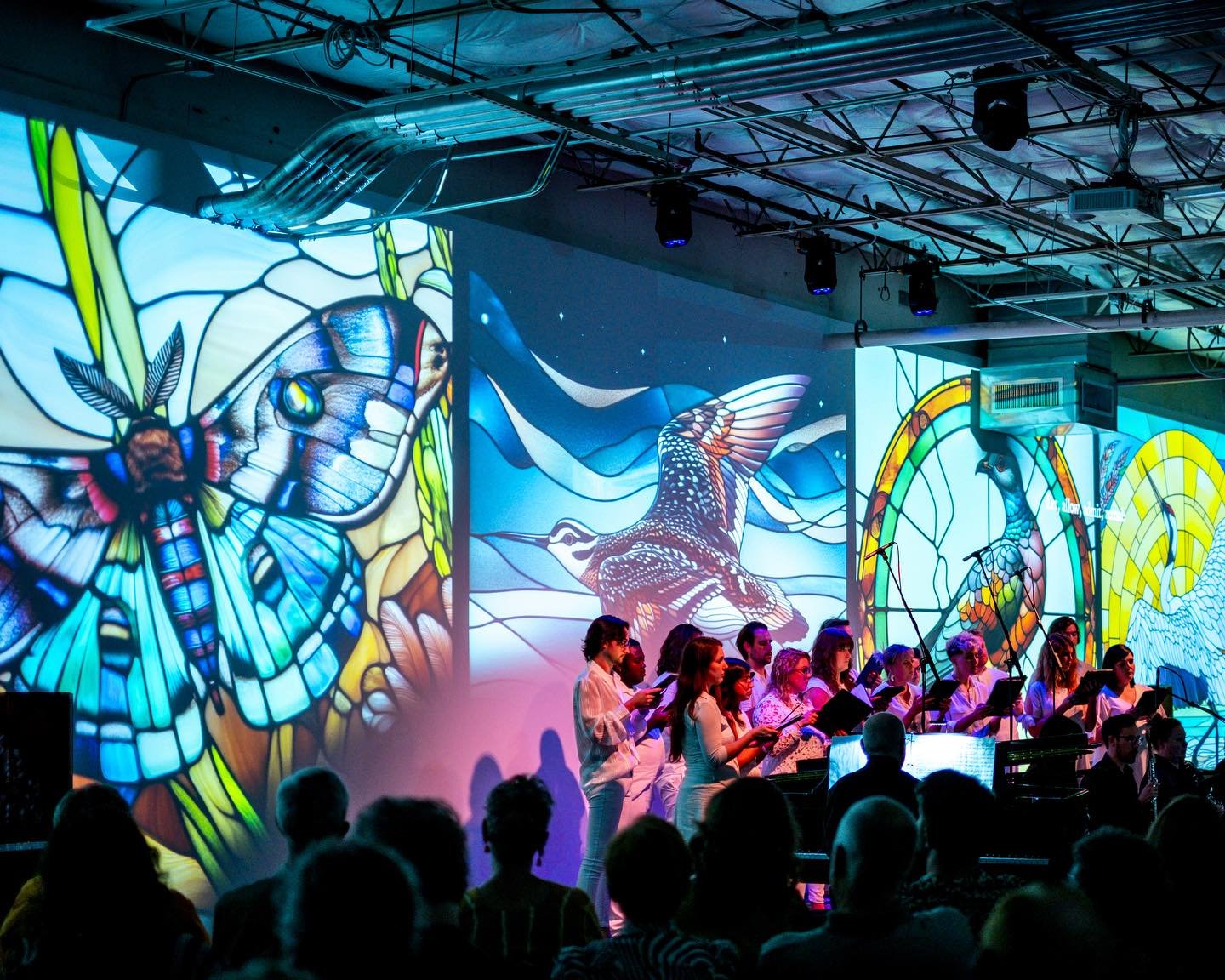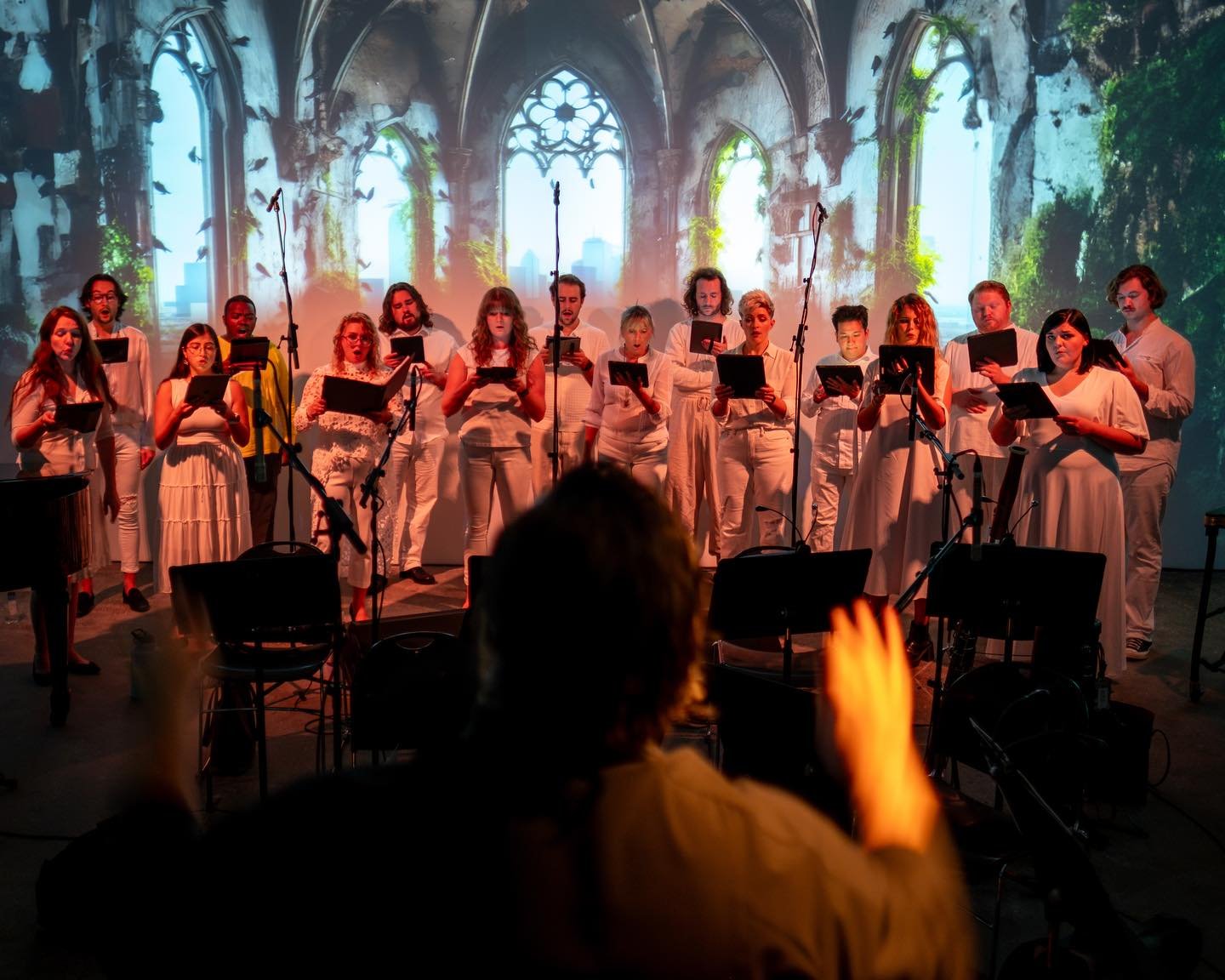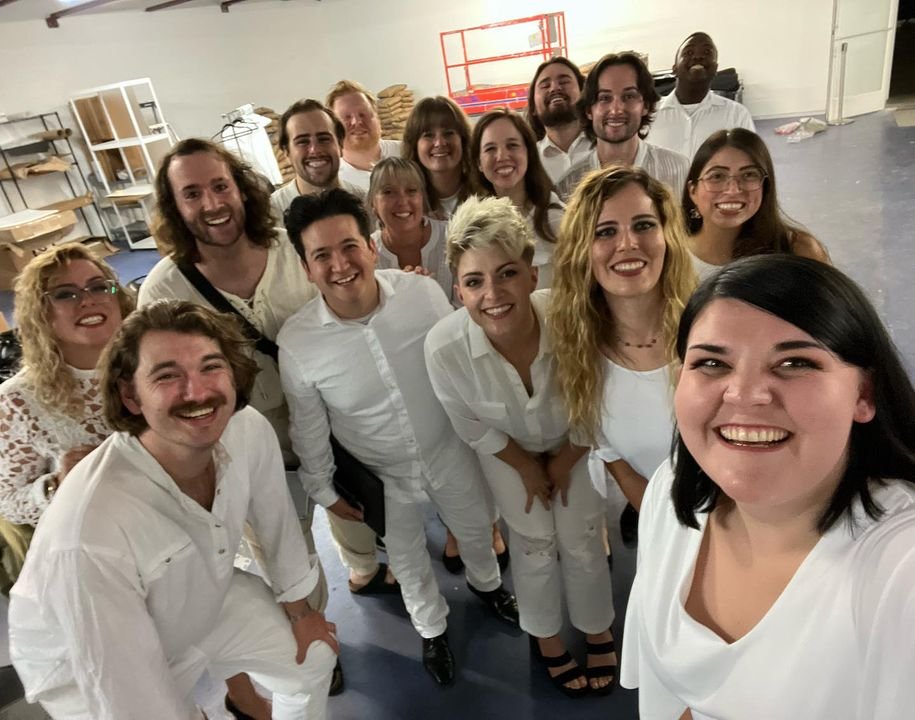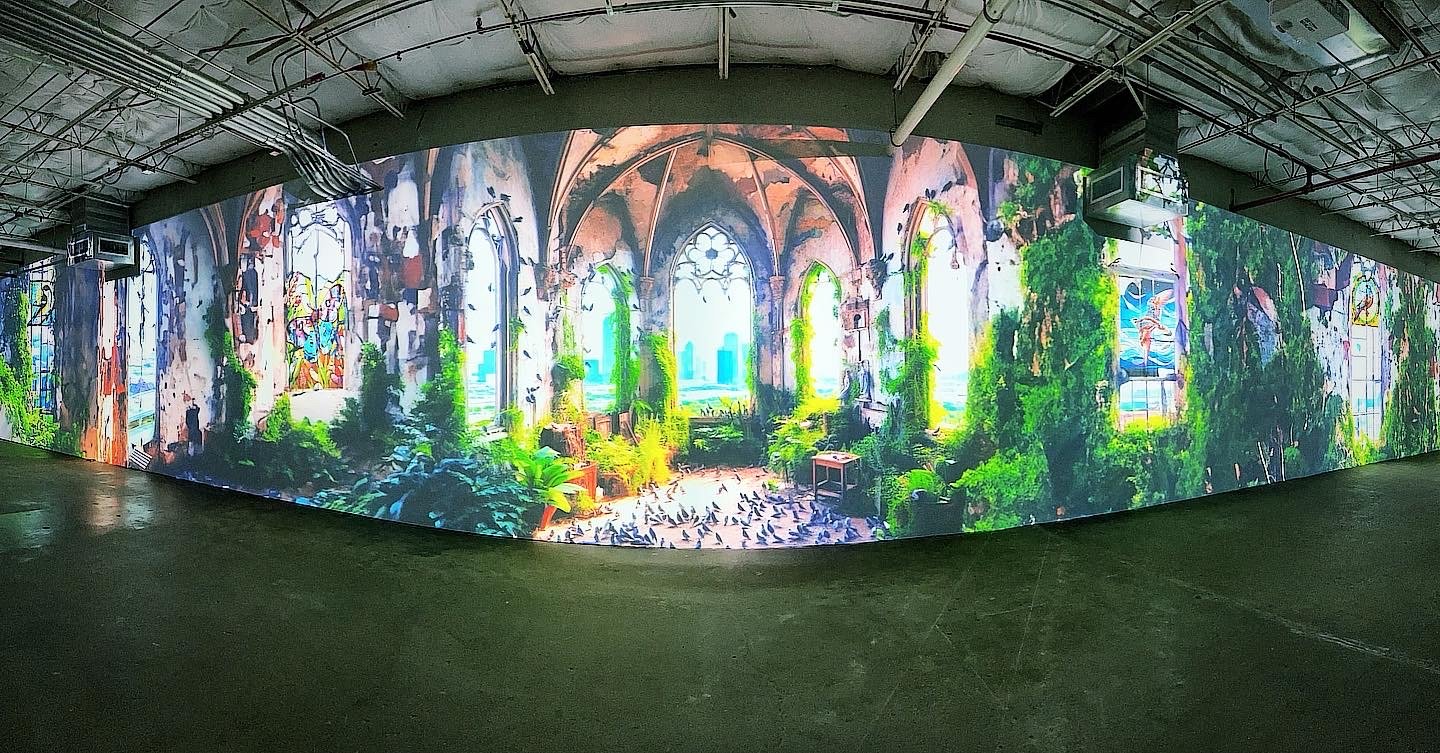‘The Endangered’ @ Verdigris Ensemble
Photos by Richard Hill Studio
—Gregory Sullivan Isaacs
Dallas’ own Verdigris Ensemble, one of the most creative choral groups around, finds itself in the Design District for performances this weekend, at the Dallas Contemporary, to be exact. The art space and the vocal ensemble are presenting “The Endangered,” an impressive and complex multi-media show described as highlighting “environmental justice and conservation” through music, poetry and immersive experience. The endangered (or already extinct) animals of the title are the Greasewood Moth, Eskimo Curlew, Passenger Pigeon, Whooping Crane, and Black-Capped Vireo.
Verdigris artistic director Sam Brukhman is the energy behind the Ensemble, known for presenting edgy and always unusual choral-based events, not always “concerts” in the strictly traditional sense. Verdigris often combines their vision and talent with other arts groups, using the definition of “concert” as group effort—of “contriving and planning together.”
“The Endangered” suits the Contemporary Dallas exhibit space, whose elongated screen wall (110 feet) easily accommodates Courtney Ware’s stunning AI-generated visuals. The space also fits the 16-voice choir, a 12-instrument orchestra, and a nearly full-house audience…with room to spare.
The mainstay of the music is a series of selections from composer Sarah Kirkland Snider's Mass for the Endangered. Loosely based on language from of the Ordinary of the Catholic Mass, it is both a celebration and a dirge for the natural world that we seem to be in the process of destroying. Other incorporated music consists of three world premieres (commissioned by Verdigris) from composers Samuel K. Sweet (Dallas), Kyle Brenn (NYC), and Anuj Bhutani (Dallas). Every aspect of the music, from piquant harmonies to the textual elements, explores the plight of individual species driven toward oblivion. (For more information on the composers and each endangered species, scroll down at: https://www.verdigrismusic.org/the-endangered )
For example, the first sound we hear is a chorus of “Drink your tea.” A little research provided the information that "Drink your Tea" is a transliteration of the bird call of the Eastern Towhee. You can hear it here: (https://www.youtube.com/watch?v=c9iHzozVSZ4.) Odd, though, that the Towhee is not one of the featured animals.
The expansive video opens on lush plant-adorned architectural arches, through which we see distant scenes moving to the forefront. Music and visuals shift as each endangered species is presented, with the repetition of the tranquil opening sequence serving as a palate cleanser.
The music is unabashedly contemporary, meaning dissonant, complex, and more linearly constructed than vertically (harmonically), while making use of extended vocal techniques. The music is difficult to the max—for the artists to perform, for Brukhman to conduct, and for the audience to follow. Four composers are represented, yet it can be challenging to distinguish one composer’s work from another after just one hearing. Intense concentration is required of listeners and viewers—but the overall effect is transformational.
The story of the Passenger Pigeon is particularly moving. We learn that they were wiped out by hunters providing epicurean delights for fancy restaurants. You have to wonder if the diners were aware of this fact. As an illustration, the text features Martha, a carefully preserved specimen, whose glass eyes appear to be on an eternal, but futile, search for her mate.
There is so much more to say. Perhaps a last few facts will suffice, and encourage readers to see one of the last two performances:
There have been five major extinction events (that we know of) in our planet’s history. Among them, they eliminated as much as 85%% of all species living at the time. It’s very likely that only a single-digit percentage of Earth’s once-living species remain with us today.
We may secretly be pleased that gigantic dinosaurs conveniently turned into hydrocarbon sludge (aka oil & gas). But we cannot escape the irony that the animal residue running our cars and airplanes might be the underlying cause of the extinction event we are currently experiencing—and lamenting.
A portion of each “Endangered” ticket sold will be donated to help fund the Texas Trees Foundation’s innovative and widespread replanting efforts in Dallas/Fort Worth and other parts of the state. ( https://texastrees.org/ )
WHEN: October 27-29, performances at 7:30 p.m.
WHERE: Dallas Contemporary, 161 Glass Street, Dallas



